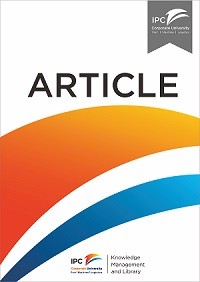Article
Freight Transport Deceleration: Its Possible Contribution to the Decarbonisation of Logistics
The paper challenges the conventional view that the movement of goods through supply chains must continue to accelerate. The compression of freight transit times has been one of the most enduring logistics trends but may not be compatible with governmental climate change policies to cut greenhouse gas emissions by 60–80% by 2050. Opportunities for cutting CO2 emissions by ‘despeeding’ are explored within a freight decarbonisation framework and split into three categories: direct, indirect and consequential. Discussion of the direct carbon savings focuses on the trucking and deep-sea container sectors, where there is clear evidence that slower operation cuts cost, energy and emissions and can be accommodated within current supply chain requirements. Indirect emission reductions could accrue from more localised sourcing and a relaxation of just-in-time (JIT) replenishment. Acceleration of logistical activities other than transport could offset increases in freight transit times, allowing the overall carbon intensity of supply chains to reduce with minimal loss of performance. Consequential deceleration results from other decarbonisation initiatives such as freight modal split and a shift to lower carbon fuels. Having reviewed evidence drawn from a broad range of sources, the paper concludes that freight deceleration is a promising decarbonisation option, but raises a number of important issues that will require new empirical research.
Ketersediaan
Informasi Detail
- Judul Seri
-
Transport Reviews
- No. Panggil
-
ATC LO MCK f
- Penerbit
- Germany : Crossmark., 2016
- Deskripsi Fisik
-
20 p.
- Bahasa
-
English
- ISBN/ISSN
-
1464-5327
- Klasifikasi
-
LO
- Tipe Isi
-
-
- Tipe Media
-
-
- Tipe Pembawa
-
online resource
- Edisi
-
-
- Subjek
- Info Detail Spesifik
-
-
- Pernyataan Tanggungjawab
-
Alan C. McKinnon
Versi lain/terkait
| Judul | Edisi | Bahasa |
|---|---|---|
| The break-even distance of road and inland waterway freight transportation systems | vol. 17 | en |
| Logistics costs in Norway: comparing industry survey results against calculations based on a freight transport model | Vol. 17, No. 6, 485–502 | en |
Lampiran Berkas
Komentar
Anda harus masuk sebelum memberikan komentar

 Karya Umum
Karya Umum  Filsafat
Filsafat  Agama
Agama  Ilmu-ilmu Sosial
Ilmu-ilmu Sosial  Bahasa
Bahasa  Ilmu-ilmu Murni
Ilmu-ilmu Murni  Ilmu-ilmu Terapan
Ilmu-ilmu Terapan  Kesenian, Hiburan, dan Olahraga
Kesenian, Hiburan, dan Olahraga  Kesusastraan
Kesusastraan  Geografi dan Sejarah
Geografi dan Sejarah